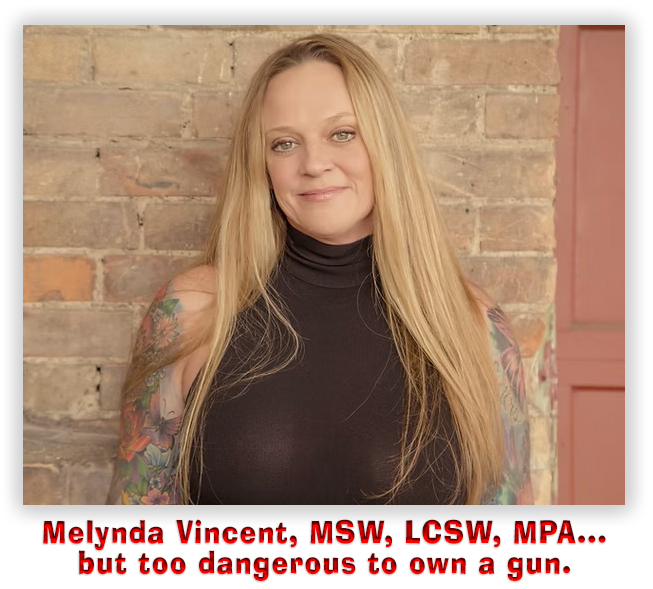- This topic is empty.
-
AuthorPosts
-
-
July 12, 2025 at 3:15 am #10217
Kris Marker
KeymasterWe post news and comment on federal criminal justice issues, focused primarily on trial and post-conviction matters, legislative initiatives, and sentencing issues.
‘CAN’T IGNORE THIS ONE,’ PARTIES MAY TELL SCOTUS IN 922(g)(1) CASE
 I have written before about Melynda Vincent, a woman convicted of bank fraud 15 years ago for writing some bad checks while in the throes of drug addiction. Since then, Melynda has cleaned up, graduated from a drug treatment program, earned an undergraduate degree and two graduate degrees, and founded the Utah Harm Reduction Coalition – a nonprofit organization focused on drug treatment and criminal-justice reform – as well as a mental health counseling service, Life Changes Counseling.
I have written before about Melynda Vincent, a woman convicted of bank fraud 15 years ago for writing some bad checks while in the throes of drug addiction. Since then, Melynda has cleaned up, graduated from a drug treatment program, earned an undergraduate degree and two graduate degrees, and founded the Utah Harm Reduction Coalition – a nonprofit organization focused on drug treatment and criminal-justice reform – as well as a mental health counseling service, Life Changes Counseling.In February, the 10th Circuit said, “So what? You still can’t own a gun.” Melynda has filed for Supreme Court certiorari, and she has picked up both the Federal Public Defenders and the National Rifle Association as amici (filing briefs in support of her petition).
Most interesting is this: the DOJ was due to oppose her petition in June. It got an extension until July 11 and then last week asked for and got a second extension until August 11.
It may be that DOJ, opposed to such petitions in the past but lately avoiding the issue (as in not seeking certiorari in the 3rd Circuit Range case), does not yet know what to do.
I have said before that Vincent is the best case out there to put the constitutionality of 18 USC § 922(g)(1) in front of the Justices. The DOJ’s position on this is something to watch closely.
Vincent v. Bondi, Case No. 24-1155 (petition for certiorari pending)
– Thomas L. Root
-
-
AuthorPosts
- You must be logged in to reply to this topic.
